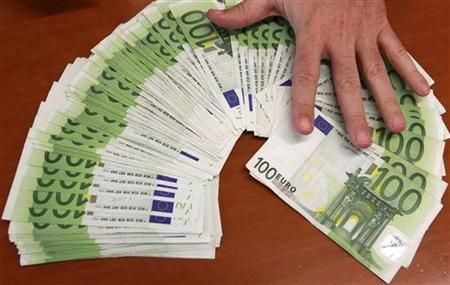G20 Pledges to Support Banks but is Short on Specifics

The world's major economies pledged Thursday to prevent the euro zone's debt crisis from undermining banks and markets but announced no new specific measures to shore up confidence in the global economy.
Under pressure from investors to show action, finance ministers and central bankers from the Group of 20 economies said they would take all steps needed to calm the stresses wracking the global financial system.
We commit to take all necessary actions to preserve the stability of banking systems and financial markets as required, the G20 said in a communique after a dinner meeting in Washington that focused on the European debt crisis.
Several European banks have seen their share prices tumble and their costs of funding rise as investors worried about their exposure to debt issued by Greece and other debt-heavy European countries.
World stocks fell on Thursday to their lowest level in 13 months, hurt by the risk of a new U.S. recession and weaker economic data from China as well as Europe's debt problems.
Finance chiefs have gathered in the U.S. capital ahead of the semi-annual meetings of the International Monetary Fund and World Bank.
In a sign the euro zone might seek to bolster its financial rescue fund, the G20 statement said the bloc's members would implement actions to increase the flexibility of the EFSF (the European Financial Stability Facility) and to maximize its impact by the group's next ministerial meeting in October.
Earlier on Thursday, U.S. Treasury Secretary Timothy Geithner voiced optimism that Europe would devote more of its own resources to backstop euro area governments and banks under stress.
I am very confident they're going to move in the direction of expanding (their) effective financial capacity, he told reporters ahead of the G20 meeting.
They're just trying to figure out how to get there in a way that is politically attractive.
Before the G20 meeting, the leaders of seven big economies stressed the need to contain the euro zone crisis, and finance officials from the so-called BRICS countries, including heavyweights China, Brazil and India, said they would consider giving more funds to the International Monetary Fund to boost global stability.
But India issued a reminder that developing countries were not in a position to bail out richer economies.
We represent a group of countries where there is (an) enormous amount of demand for resources at home for poverty reduction, Reserve Bank of India Governor Duvvuri Subbarao said at a joint BRICS news conference in Washington.
The euro area crisis, centered on a fiscal meltdown in Greece, has put a strain on the IMF's resources. With key economies teetering on the edge of recession, more countries could seek emergency loans, quickly depleting its capital.
An internal IMF staff report obtained by Reuters last week showed that the fund could comfortably lend out another $390 billion without endangering its balance sheet. But in a worst-case scenario, it may face demands for $840 billion.
China's central bank chief Zhou Xiaochuan said any talks about giving the IMF more funds should include other countries beyond the BRICS such as the Group of Seven rich nations.
Highlighting the growing role of the BRICS in the world, Zhou said major emerging markets should boost domestic demand to take up some of the slack caused by weakness in the United States and Europe.
In today's crisis period, internal demand of each economy is important, and we should find a way to enlarge internal demand in our economy, he said.
But Zhou made no mention of repeated U.S. calls for Beijing to let its yuan currency rise faster.
In Frankfurt, a European Central Bank study warned the entire euro currency project was now in peril.
(Additional reporting by David Ljunggren in Ottawa, Regan Doherty in Qatar, Daniel Flynn, Jan Strupczewski, Rachelle Younglai and Lesley Wroughton in Washington, Lionel Laurent and Julien Ponthus in Paris, Ross Finley in London, Lefteris Papadimas in Athens, Martin Santa in Frankfurt; Writing by David Lawder; Editing by Neil Stempleman and Chizu Nomiyama)
© Copyright Thomson Reuters 2024. All rights reserved.





















